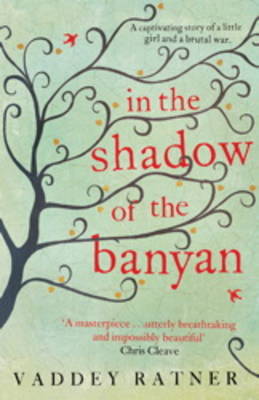Reviewed by Beth C. on
This is the story of Raami, though it is as much the story of Vaddey Ratner, the author. Raami is seven when her entire world is upended in the stroke of a Revolutionary heartbeat. Being royalty (her father a prince), her family are immediate targets no matter where they go. Raami narrates the book, demonstrating both the innocence of a child and the maturity of a girl forced to grow up far too fast in the Killing Fields of Cambodia. As she and her family are shuffled from one place to another, they are ripped apart from each other and face incredible horrors. "The Organization" expects to be the only family, the only loyalty - and the price to pay for disregarding that is death.
Ratner, who lived every experience that Raami endures in the book, writes with the same kind of poetry that presumably her father did. I found myself underlining passages that struck me as so beautiful that I wanted to remember them and be able to go back, not something I typically do. For example:
"No matter what ugliness and destruction you may witness around you, I want you always to believe that the tiniest glimpse of beauty here and there is a reflection of the gods' abode. It is real, Raami. There exists such a place, such sacred space. You have only to envision it, to dare to dream it. It is within you, within all of us."
There is little one can do to describe this book. It is a force of nature, much like the monsoons that bear down upon Cambodia every year. It is darkness, it is death - but ultimately, this story is about the beauty of life and of love, and the wings we give our children to fly within the world.
Reading updates
- Started reading
- 13 October, 2012: Finished reading
- 13 October, 2012: Reviewed
